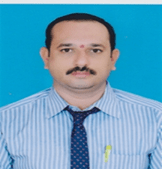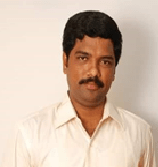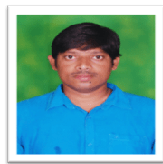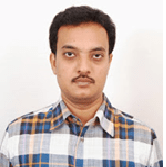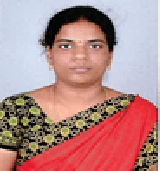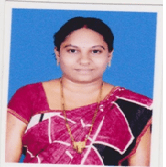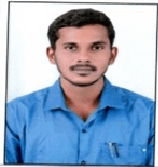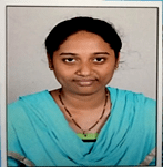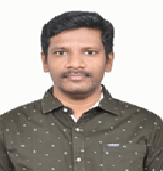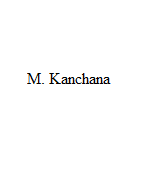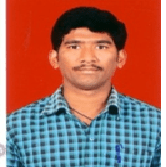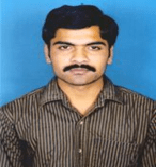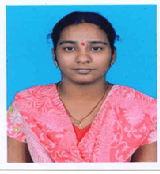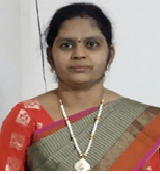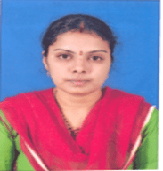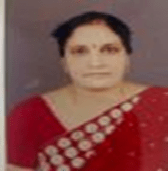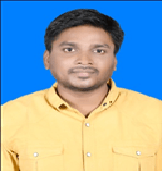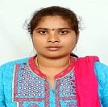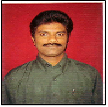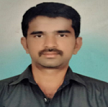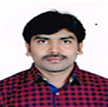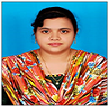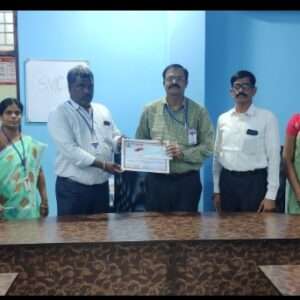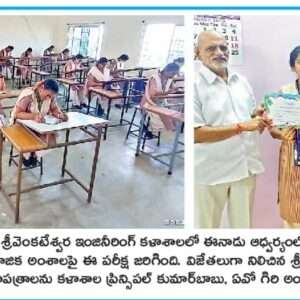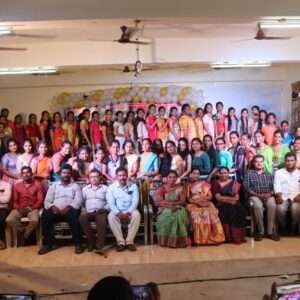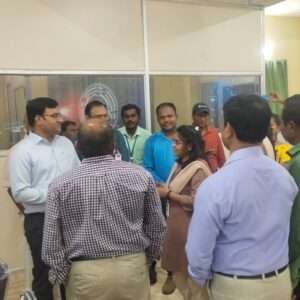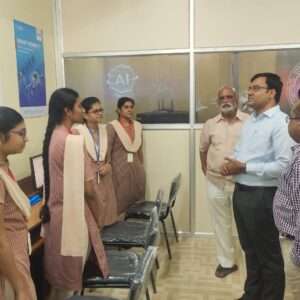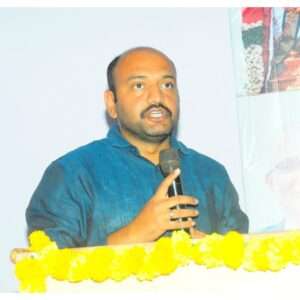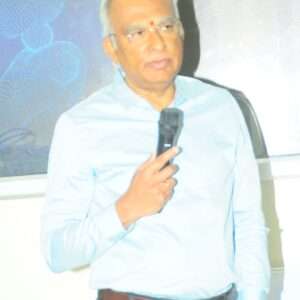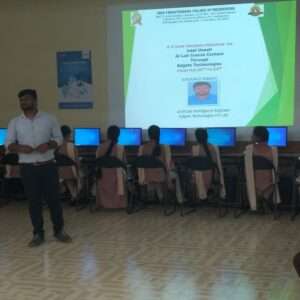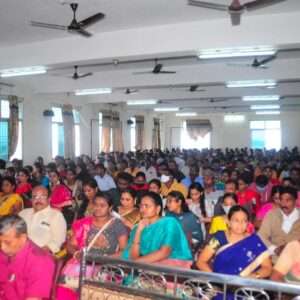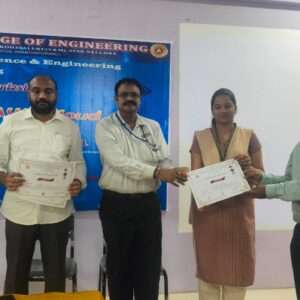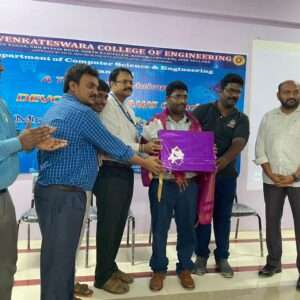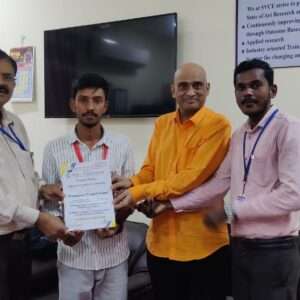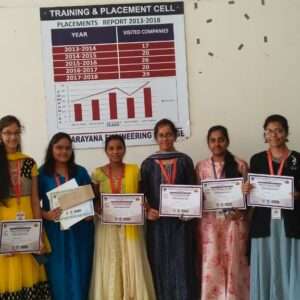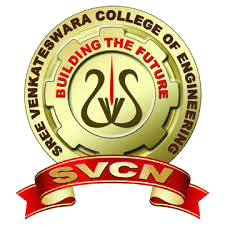cse
The Department of Computer Science & Engineering (CSE) started in 2011 with an intake of 60 and at present, the department has an intake of 180. CSE department has committed and competent faculty who keep abreast with the upcoming technologies, through continuous participation in seminars and workshops, registering for advanced courses, and acquiring merit certifications. Dedicated labs are set up to foster Research in current domains such as Data Sciences, Virtual Reality, Augmented Reality and Gaming.
The students from the department are recruited by leading IT companies as diverse as Capgemini, TCS, JP Morgan, Deloitte, Lumen Technology, NCR etc. The highest pay package of 8 LPA has been offered by NCR.
For the overall development of students, they are engaged in various activities umbrellaed under Professional societies and associations such as CSI, ISTE and IEEE. To keep place with the continuously changing technology various guest lectures, technical symposiums, certification courses, workshops, and training programs are conducted at scheduled intervals. We have whirlpool of activities for students such as Career Vision, Mentoring, Remedial Classes, Bridge Course, Workshops, Placement Training, Motivational Lectures, Sports, Cultural and Technical Fest.
Research is an integral part of academics, CSE faculty are actively involved in research in various Journals, Patents and published books and book chapters. The department has Inaugurate “Intel Unnati Artificial Intelligence Lab”, in Association with Intel Company on Feb-2023. The strong CSE Alumni network remains connected and support department in the activities like career counseling, placement guidance and mock interviews, and lectures on changing needs of the industry. They actively take part in the design of the curriculum and their input keeps the faculty and students up to date with the changing technology scenarios.
VISION:
To produce the globally competent professionals in the field of computer science and engineering with socio economic and ethical values.
MISSION:
M1: To provide state-of-the-art computer science and engineering facilities through innovative teaching and learning practices.
M2: To prepare the graduates for higher learning, emphasizing research and entrepreneurship.
M3: To inculcate ethical values, leadership qualities, and professional behaviour to improve the living standards of society.
Programme Education Objectives(PEOs)
PEO1: To provide the graduates with effectively applying mathematics, science, and engineering methodologies for analyzing, designing, and implementing software solutions for real-world problems.
Program Outcomes
PO1: Engineering knowledge: Apply the knowledge of mathematics, science, engineering fundamentals, and an engineering specialization to the solution of complex engineering problems
PO2: Problem analysis: Identify, formulate, review research literature, and analyze complex engineering problems reaching substantiated conclusions using first principles of mathematics, natural sciences, and engineering sciences
PO3: Design/development of solutions: Design solutions for complex engineering problems and design system components or processes that meet the specified needs with appropriate consideration for the public health and safety, and the cultural, societal, and environmental considerations
PO4: Conduct investigations of complex problems: Use research-based knowledge and research methods including design of experiments, analysis and interpretation of data, and synthesis of the information to provide valid conclusions
PO5: Modern tool usage: Create, select, and apply appropriate techniques, resources, and modern engineering and IT tools including prediction and modeling to complex engineering activities with an understanding of the limitations.
PO6: The engineer and society: Apply reasoning informed by the contextual knowledge to assess societal, health, safety, legal and cultural issues and the consequent responsibilities relevant to the professional engineering practice
PO7: Environment and sustainability: Understand the impact of the professional engineering solutions in societal and environmental contexts, and demonstrate the knowledge of, and need for sustainable development.
PO8: Ethics: Apply ethical principles and commit to professional ethics and responsibilities and norms of the engineering practice.
PO9: Individual and team work: Function effectively as an individual, and as a member or leader in diverse teams, and in multidisciplinary settings.
PO10: Communication: Communicate effectively on complex engineering activities with the engineering community and with society at large, such as, being able to comprehend and write effective reports and design documentation, make effective presentations, and give and receive clear instructions.
PO11: Project management and finance: Demonstrate knowledge and understanding of the engineering and management principles and apply these to one’s own work, as a member and leader in a team, to manage projects and in multidisciplinary environments.
PO12:Life-long learning: Recognize the need for, and have the preparation and ability to engage in independent and life-long learning in the broadest context of technological change.
Programme Specific Objectives(PSOs)
PSO1: Domain-specific knowledge: Acquire knowledge of hardware functionality, design, and development of software components required to process the information.
PSO2: Problem-solving skills: Analyze data, identify data structures, design suitable algorithms, develop and maintain software for real-world problems.
Syllabus
S.No | Regulation | View |
1 | R20 B.Tech-III&IV Year | |
2 | R20 B.Tech-II Year | |
3 | R20 B.Tech-I Year | |
4 | R19 B.Tech-I-II-III & IV Year | |
5 | R15 B.Tech-I-II-III & IV Year |
Course Outcomes (COs)
S.No | Regulation | View |
1 | R20 Regulation | |
2 | R19 Regulation | |
3 | R15 Regulation |
Welcome to Department of Computer Science & Engineering, SVCN.
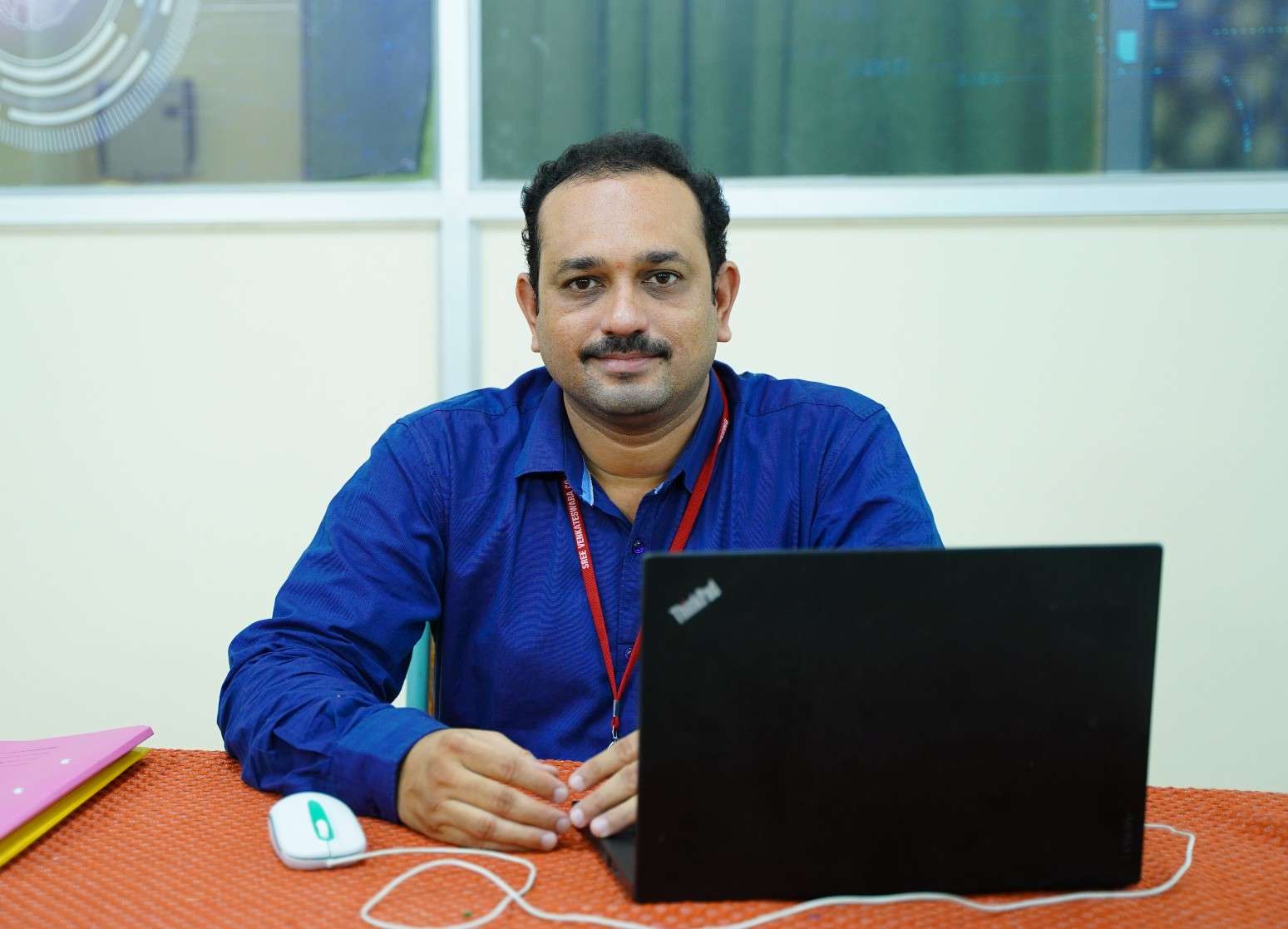
Dr K Venkata Nagendra.
M.Tech,Ph.D,MISTE,MIAENG.
Professor & HOD Department of CSE
csehod@svcn.ac.in; drkvnagendra@svcn.ac.in
The Department of Computer Science and Engineering welcomes you to be a part of the flourishing computer science community. Department of CSE came into existence in the year 2011 with an intake of 60 and at present,the department has an intake of 180. Our distinguished faculty members ensure a wide range of diverse learning experiences ranging from the fundamentals of Computer Science, Core Courses, Programming, Emerging Technologies like Big Data Analytics, Data Mining, IoT, AI, Machine Learning, Cyber Security, Block-chain, Professional Ethics, Research Methodologies and Open-Source Technologies to name just a few.
Our Department of Computer Science & Engineering (CSE) is dedicated for ensuring great careers for our students. Our faculty and students are constantly striving to excel and to advance the state of the art in Computer Science and Engineering. We want the education imparted to our students to be the basis of a life time of learning. Well maintained labs with all open source technologies and all latest tools and software. We believe that this approach to teaching-learning, coupled with practical experience gained during Industrial Training in reputed organizations, equips our students to handle the challenges posed by the software industry. I am confident that one can find our students worthy of the organization where they join.
The Department is proud to have a strong-alumni-network, many of whom hold influential positions in the Information Technology industry and academia, at both, national and international levels. We look forward to having talented students, researchers, academicians, and professionals join us and augment the healthy and competitive learning atmosphere in the campus! Also CSE department is having MoUs with some of the best organizations and trying to strengthen them further
The placement record of eligible students from last many years is very good and is working in reputed IT companies. Students along with the teachers constantly involved in exciting and interesting problems/projects to explore and innovate new methods and finding sustainable solutions, published in various national and international journals.
It remains as the most preferred choice of all the students seeking admission in SVCN. We as a team sincerely welcome the young talent who aspire to pursue studies, to educate, or to innovate in the area of Computer Science. So Come and Join us.
List of Faculty
S.NO | NAME OF THE FACULTY | QUALIFICATION | DESIGNATION |
1 | M.Tech, Ph.D | Professor & HOD | |
2 | Dr. J. BALA VENKATA SUBRAHMANYAM | M.Tech, Ph.D | Professor |
3 | Dr. K.V. RANGA RAO | M.Tech, Ph.D | Professor |
4 | Dr. P. KALYANI | M.Tech, Ph.D | Associate Professor |
5 | Dr. K. S ANUSHA | M.E, Ph.D | Associate Professor |
6 | Dr. M. CHIRANJEEVI | M.Tech, Ph.D | Associate Professor |
7 | MALLISHETTY. PRAVEEN KUAMR | M.E, (Ph.D) | Assistant Professor |
8 | P. MOHAN | M.Tech, (Ph.D) | Assistant Professor |
9 | MODEM. JEEVAN KUMAR | M.Tech, (Ph.D) | Assistant Professor |
10 | V. KUSUMA PRIYA | M.Tech | Assistant Professor |
11 | I. SHALINI | M.Tech | Assistant Professor |
12 | N. HARISH | M.Tech | Assistant Professor |
13 | P. NAGENDRA BABU | M.Tech, (Ph.D) | Assistant Professor |
14 | R. PRAPULLA KUMAR | M.Tech, (Ph.D) | Assistant Professor |
15 | KATAMREDDY. MAHENDRA | M.Tech | Assistant Professor |
16 | K. SRIKANTH REDDY | M.Tech | Assistant Professor |
17 | G. VIDYA SAGAR | M.Tech | Assistant Professor |
18 | SD. AFRIN | M.Tech | Assistant Professor |
19 | MATIMPATI. CHITRARUPA | M.Tech, (Ph.D) | Assistant Professor |
20 | K. SRAVANI | M.Tech | Assistant Professor |
21 | T. RAJA MOHAN REDDY | M.Tech | Assistant Professor |
22 | CHEGU. RUPA KALPANA | M.Tech | Assistant Professor |
23 | M. KANCHANA | M.Tech | Assistant Professor |
24 | GONGATI. SAI SUSHMANTH | M.Tech | Assistant Professor |
25 | E. DAYAKAR | M.Tech | Assistant Professor |
26 | K. SIVASANKARA RAO | M.Tech | Assistant Professor |
27 | V. MAHESH KUMAR | M.Tech | Assistant Professor |
28 | CH .SAINATH | M.Tech | Assistant Professor |
29 | G. SUDARSANAM | M.Tech | Assistant Professor |
30 | V. S. V. HARIKA | M.Tech | Assistant Professor |
31 | CHEVURU. VENU | M.Tech | Assistant Professor |
32 | RAMESH. NOSINA | M.Tech | Assistant Professor |
33 | KATHULA. RAJESH | M.Tech | Assistant Professor |
Faculty Profiles
DEPARTMENT OF COMPUTER SCIENCE AND ENGINEERING
The CSE Department of Sree Venkateswara College of Engineering boasts of state-of-the-art laboratory facilities for Computer Programming & Data Structures, Data Base Management Systems, Object Oriented Programming through Java, Operating Systems, Objected Oriented Analysis and Design, Software Testing, Web Technologies, Data Mining, Mobile Application Development, Python Programming. The dedicated laboratories house computers, equipped with advanced hardware and software technologies making it apt for both teaching and research activities.

Computer Programming & Data Structures Lab
Computer Programming & Data Structures Lab subject is designed for the first year and first semester of B. Tech course. The subject is designed to help the students learn C Programming language and solve problems by implementing algorithms using C language, Data Structures is designed to strengthen the ability to identify and apply suitable data structures for a given real world problem.
Computer Lab-2
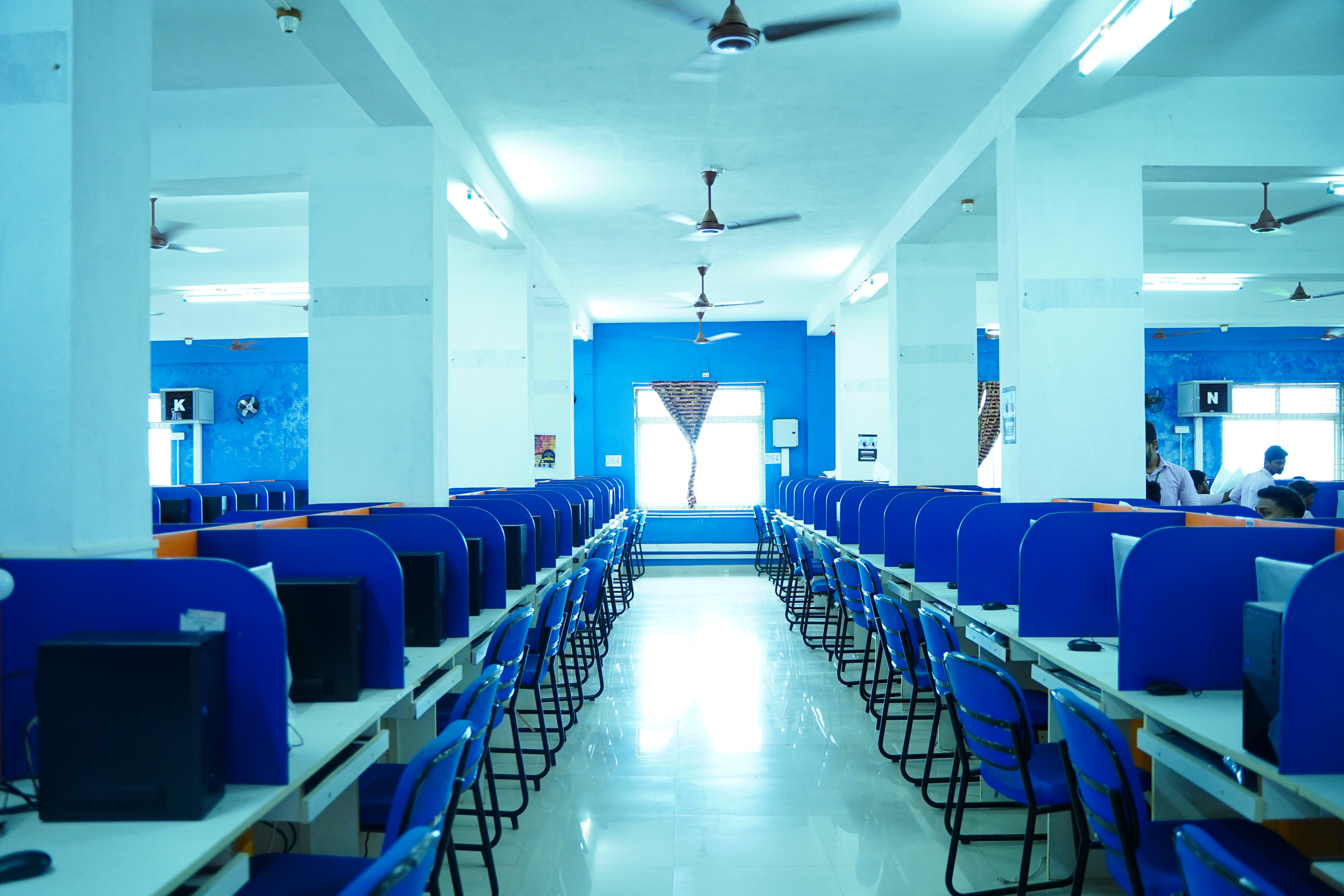
Advanced Data Structures and Algorithms Lab
Advanced Data Structures and Algorithms Lab subject is designed for the Second year and first semester of B. Tech course. The subject is designed to help the students learn Advanced Data Structures by implementing algorithms using C language, Advanced Data Structures and Algorithms is designed to strengthen the ability to identify and apply suitable data structures for a given real world problem, Understand and apply data structure operations, Apply Greedy, divide and conquer algorithms.
Advanced Web Application Development
Advanced Web Application Development Lab subject is designed for the Third year first semester of B. Tech course. The subject is designed to introduce the students to create dynamic websites using PHP and MySQL, Handle Authentication using Sessions, JWT, Secure Web applications from common attacks like Injection, XSS, Host Websites in traditional web hosting platforms and also Cloud based infrastructure.
Machine Learning Lab
Machine Learning Lab subject is designed for the Third year and second semester of B. Tech course. The subject is designed to help the students to learn Machine Learning Models & analyse the data it is designed to strengthen the ability to identify and apply suitable Machine Learning algorithms for a given real-world problem.
Computer Lab-3
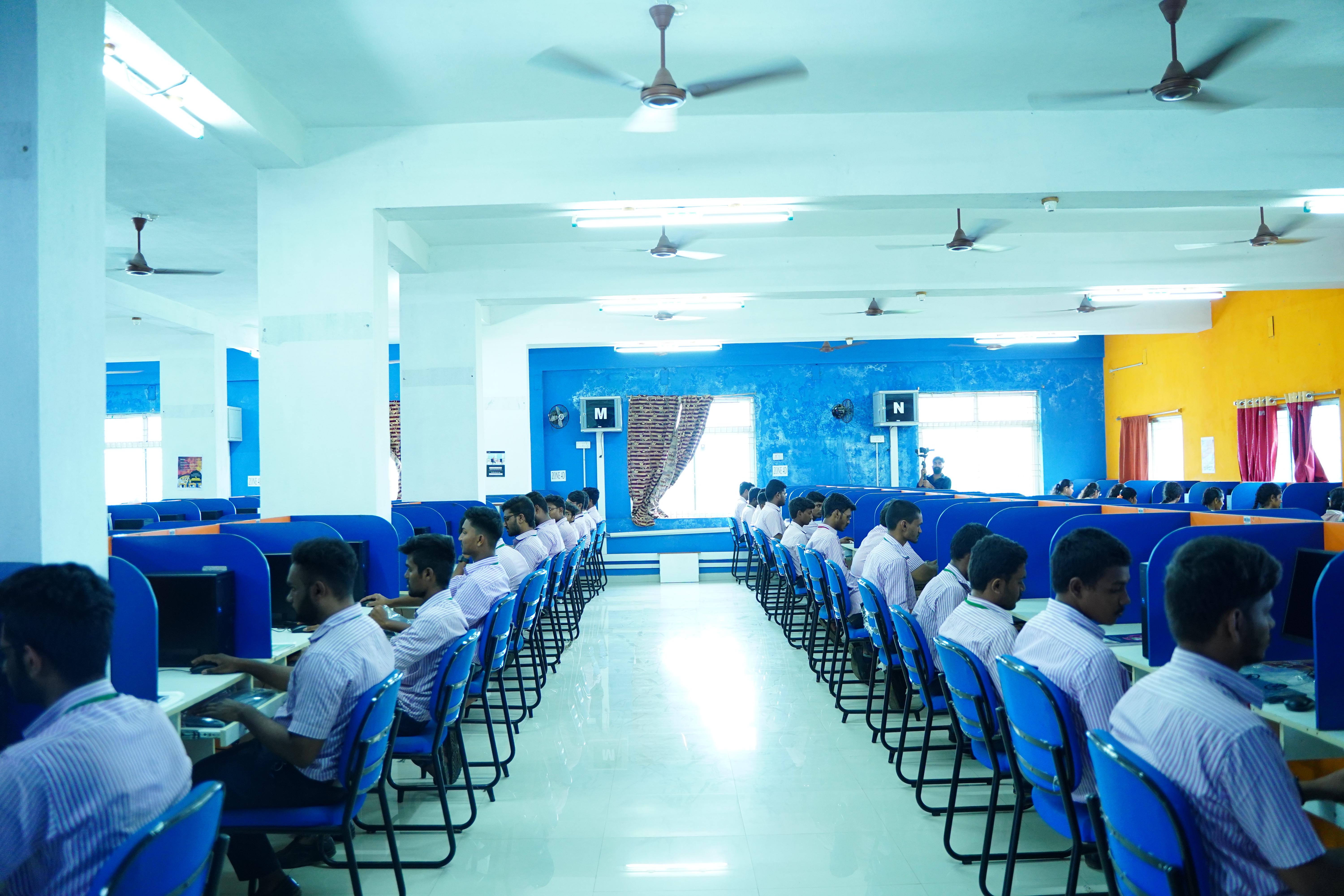
Web application Development Lab
Web Application Development Lab subject is designed for the Second year first semester of B. Tech course. The subject is designed to introduce the students to Construct web sites with valid HTML, CSS, JavaScript, Develop websites using jQuery to provide interactivity and engaging user experiences, Design and develop web applications using Content Management Systems like WordPress.
Artificial Intelligence Lab
Artificial Intelligence Lab subject is designed for the Third year and second semester of B. Tech course. The subject is designed to help the students learn to Solve Artificial intelligence problems. Implement search algorithms, Design chatbot and virtual assistant.
Software Engineering Lab
Software Engineering Lab subject is designed for the Second year Second semester of B. Tech course. The subject is designed to introduce the students to Understand the phases of software projects and practice the activities of each phase, Practice clean coding, Take part in project management, Adopt skills such as distributed version control, unit testing, integration testing, build management, and deployment.
Exploratory Data Analysis with R LAB
Exploratory Data Analysis with R Lab subject is designed for the Second year Second semester of B. Tech course. The subject is designed to introduce the students to Apply the knowledge of R gained to data Analytics for real-life applications, Install and use R for simple programming tasks, Explore statistical functions in R, Use R Graphics and Tables to visualize results of various statistical operations on data.
Computer Lab-4
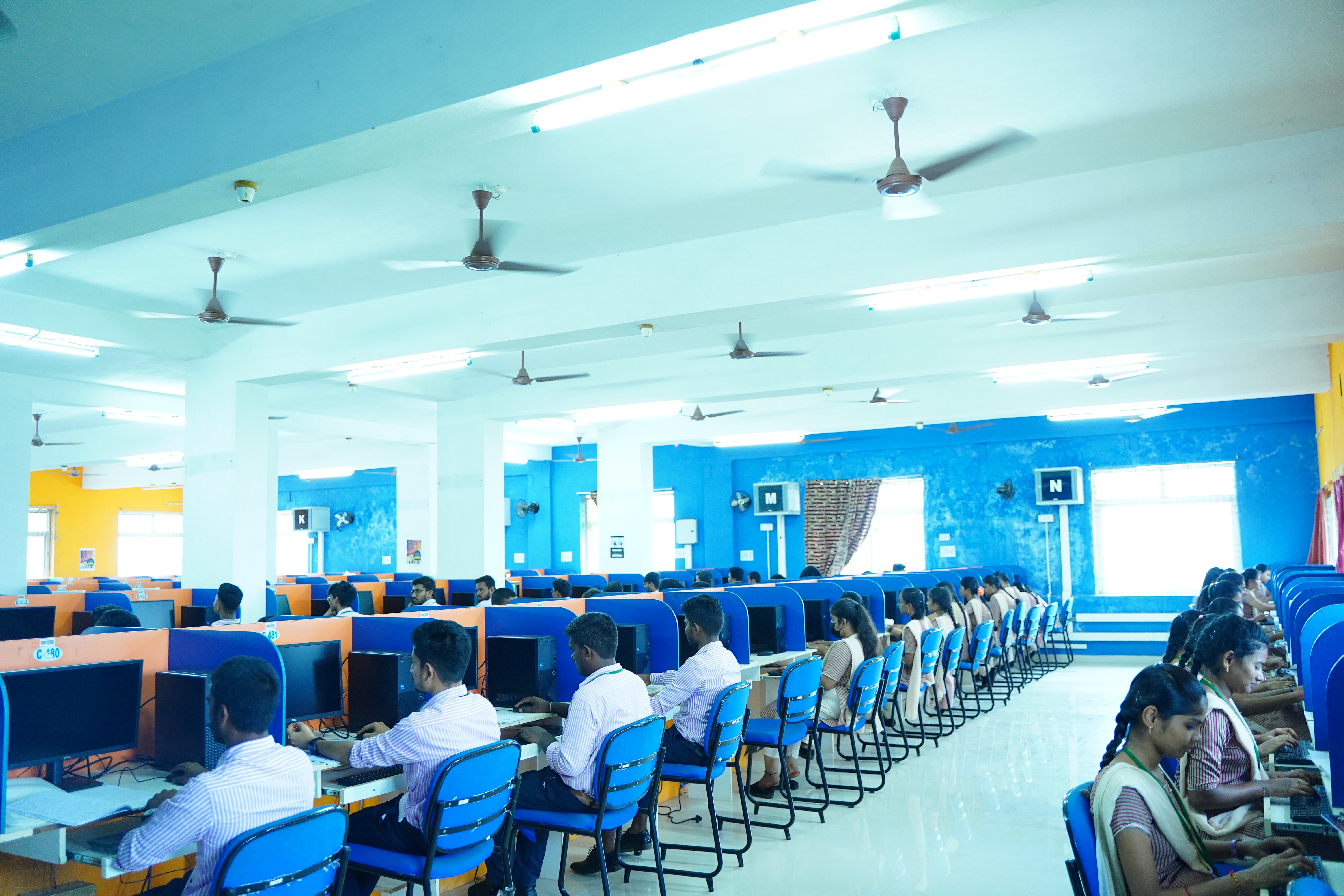
Object Oriented Programming Through Java Lab
Object Oriented Programming Through Java Lab subject is designed for the Second year First semester of B. Tech course. The subject is designed to introduce the students to solve real- world problems using OOP techniques, Apply code reusability through inheritance, packages and interfaces, Develop applets for web applications, Build GUIs and handle events generated by user interactions, Use the JDBC API to access the database.
Computer Networks Lab
Computer Networks Lab subject is designed for the Third year First semester of B. Tech course. The subject is designed to introduce the students to Analyze the data traffic using tools, Design scripts for Wired network simulation, programs for client-server communication, Construct a wired and wireless network using the real hardware.
Database Management Systems Lab
Database Management Systems Lab subject is designed for the Second year Second semester of B. Tech course. The subject is designed to introduce the students to Design database for any real world problem, Implement PL/SQL programs SQL queries, Investigate for data inconsistency
Compiler Design Lab
Compiler Design Lab subject is designed for the Third year Second semester of B. Tech course. The subject is designed to introduce the students to Design, develop, and implement a compiler for any language, Use LEX and YACC tools for developing a scanner and a parser, Design and implement LL and LR parsers, Design algorithms to perform code optimization in order to improve the performance of a program in terms of space and time complexity
Computer Lab-5

Internet of Things Lab
Internet of Things Lab subject is designed for the Third year Second semester of B. Tech course. The subject is designed to introduce the students to Design the IoT systems for real time applications, Know the various IoT sensors and understand the functionality, Design and analyze IoT experiments and transfer the data to IoT Clouds.
Computer Lab-6
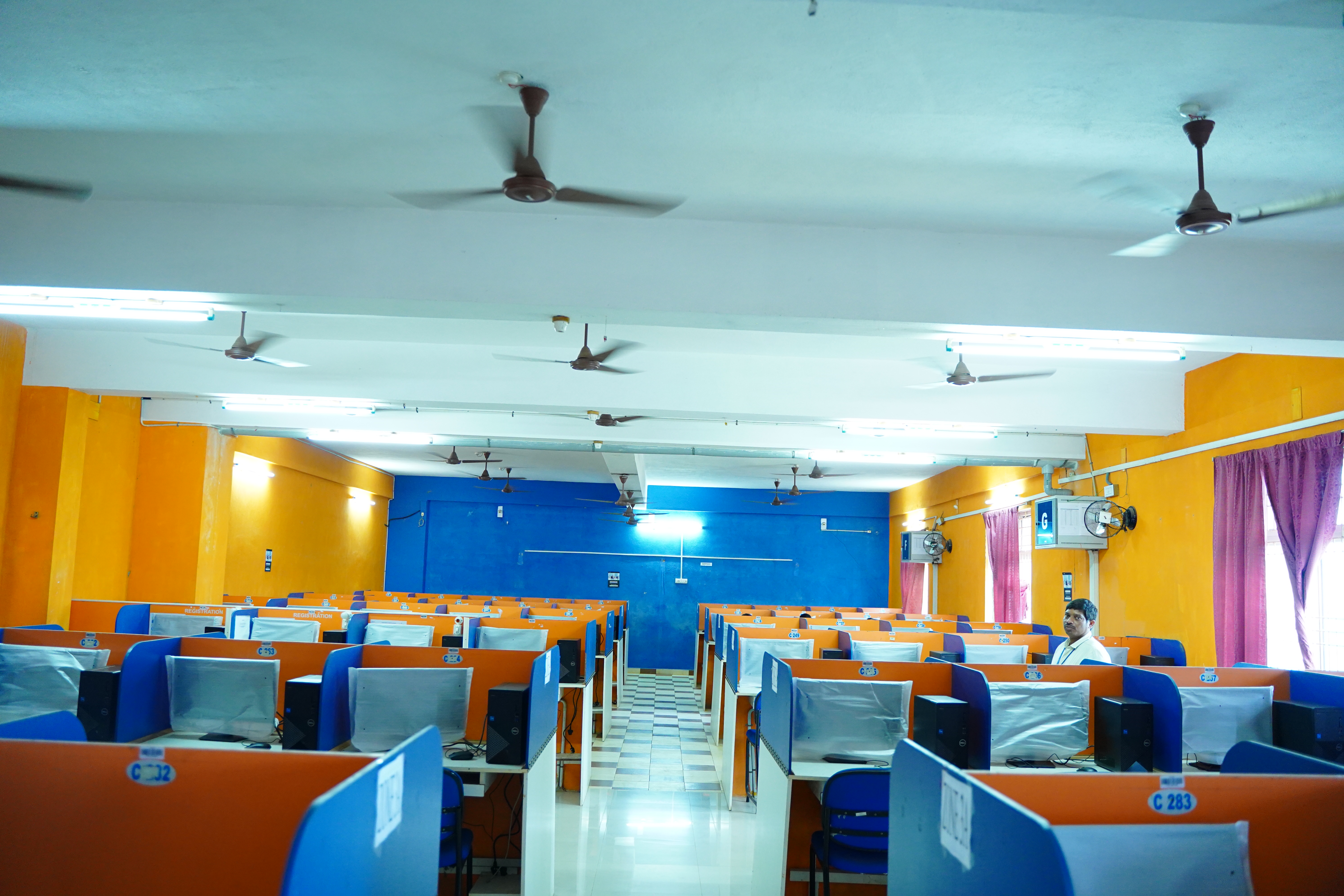
IT Workshop
IT Workshop Lab subject is designed for the Second year Second semester of B. Tech course. The subject is designed to introduce the students to To make the students know about the internal parts of a computer, assembling and dissembling a computer from the parts, preparing a computer for use by installing the operating system , To provide Technical training to the students on Productivity tools like Word processors, Spreadsheets, Presentations and LAteX, To learn about Networking of computers and use Internet facility for Browsing and Searching
Computer Lab-7
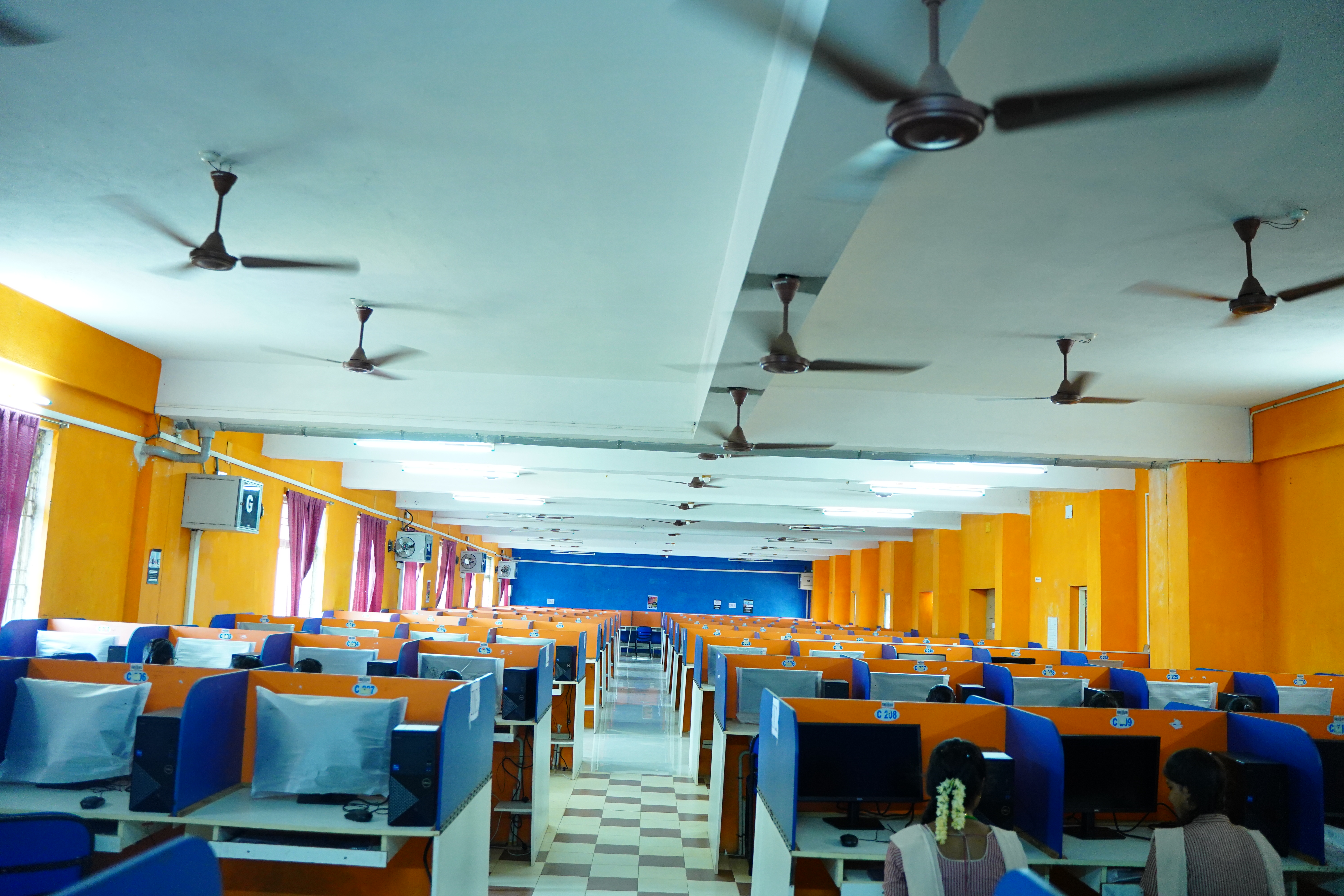
Operating Systems Lab
Operating Systems Lab subject is designed for the First year first semester of B. Tech course. The subject is designed to introduce the students to Design new scheduling algorithms, Illustrate shared memory process, Evaluate Page replacement algorithms, Trace different CPU Scheduling algorithms, Implement Bankers Algorithms to Avoid and prevent the Dead Lock.
PROJECT LAB
Project Lab is designed to introduce the student to Research to identify real-time problems and provide solutions.
Intel® Unnati Data-Centric Lab
The Intel® Unnati Program is focused on technology inclusion, and advancing students’ skills in emerging technology. Programs under Unnati are curated to equip engineering students with relevant data-centric skills and cultivate them to be industry-ready, providing a strategic impetus to India’s digital economy transformation.
Through a network of system integrators, Intel aims to set up 100 Intel® Unnati Data- Centric Labs in emerging technologies. The program will also focus on expanding its network to include many educational institutes and universities providing them long-term capabilities in technology, lab infrastructure and enabling a greater focus on research and innovation.
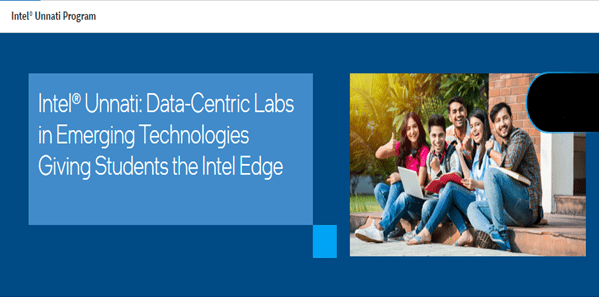
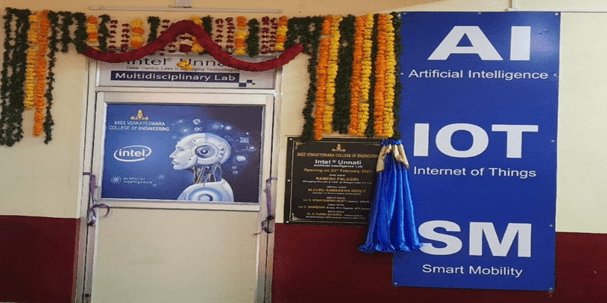
Faculty Participation
FDP’S:
S.No | Academic Year | View |
1 | 2021-22 | |
2 | 2020-21 |
Workshops:
S.No | Academic Year | View |
1 | 2021-22 | |
2 | 2020-21 |
Faculty Achievements
Publications
S.No | Academic Year | View |
1 | 2022-23 | |
2 | 2021-22 | |
3 | 2020-21 | |
4 | 2019-20 |
Patents
S.No | Academic Year | View |
1 | 2022-23 | |
2 | 2021-22 |
Books/Book Chapter Publications
S.No | Academic Year | View |
1 | 2022-23 | |
2 | 2021-22 | |
3 | 2020-21 | |
4 | 2019-20 |
NPTEL Videos
S.No | Subject | View |
1 | Programming in c | |
2 | Programming in c | |
3 | Programming in c | |
4 | Programming in c | |
5 | Programming in c | |
6 | Programming in c | |
7 | Programming in c | |
8 | Programming in c | |
9 | Programming in c | |
10 | Programming in c |
S.No | Subject | View |
1 | Computer Networks | |
2 | Computer Networks | |
3 | Computer Networks | |
4 | Computer Networks | |
5 | Computer Networks | |
6 | Computer Networks | |
7 | Computer Networks | |
8 | Computer Networks | |
9 | Computer Networks | |
10 | Computer Networks |
S.No | Subject | View |
1 | Software Engineering | |
2 | Software Engineering | |
3 | Software Engineering | |
4 | Software Engineering | |
5 | Software Engineering | |
6 | Software Engineering | |
7 | Software Engineering | |
8 | Software Engineering | |
9 | Software Engineering | |
10 | Software Engineering |
S.No | Subject | View |
1 | Database Management Systems | |
2 | Database Management Systems | |
3 | Database Management Systems | |
4 | Database Management Systems | |
5 | Database Management Systems | |
6 | Database Management Systems | |
7 | Database Management Systems | |
8 | Database Management Systems | |
9 | Database Management Systems | |
10 | Database Management Systems |
S.No | Subject | View |
1 | Computer Organisation | |
2 | Computer Organisation | |
3 | Computer Organisation | |
4 | Computer Organisation | |
5 | Computer Organisation | |
6 | Computer Organisation | |
7 | Computer Organisation | |
8 | Computer Organisation | |
9 | Computer Organisation | |
10 | Computer Organisation |
Sno | Subject | View |
1 | Computer Networks and Security | |
2 | Computer Networks and Security | |
3 | Computer Networks and Security | |
4 | Computer Networks and Security | |
5 | Computer Networks and Security | |
6 | Computer Networks and Security | |
7 | Computer Networks and Security | |
8 | Computer Networks and Security | |
9 | Computer Networks and Security | |
10 | Computer Networks and Security |
Sno | Subject | View |
1 | Cloud computing | |
2 | Cloud computing | |
3 | Cloud computing | |
4 | Cloud computing | |
5 | Cloud computing | |
6 | Cloud computing | |
7 | Cloud computing | |
8 | Cloud computing | |
9 | Cloud computing | |
10 | Cloud computing |
Sno | Subject | View |
1 | Big data | |
2 | Big data | |
3 | Big data | |
4 | Big data | |
5 | Big data | |
6 | Big data | |
7 | Big data | |
8 | Big data | |
9 | Big data | |
10 | Big data |
Sno | Subject | View |
1 | Artificial Intelligence | |
2 | Artificial Intelligence | |
3 | Artificial Intelligence | |
4 | Artificial Intelligence | |
5 | Artificial Intelligence | |
6 | Artificial Intelligence | |
7 | Artificial Intelligence | |
8 | Artificial Intelligence | |
9 | Artificial Intelligence | |
10 | Artificial Intelligence |
Sno | Subject | View |
1 | Machine learning | |
2 | Machine learning | |
3 | Machine learning | |
4 | Machine learning | |
5 | Machine learning | |
6 | Machine learning | |
7 | Machine learning | |
8 | Machine learning | |
9 | Machine learning | |
10 | Machine learning |
Sno | Subject | View |
1 | Flat | |
2 | Flat | |
3 | Flat | |
4 | Flat | |
5 | Flat | |
6 | Flat | |
7 | Flat | |
8 | Flat | |
9 | Flat | |
10 | Flat |
Sno | Subject | View |
1 | Flat | |
2 | Flat | |
3 | Flat | |
4 | Flat | |
5 | Flat | |
6 | Flat | |
7 | Flat | |
8 | Flat | |
9 | Flat | |
10 | Flat |
Sno | Subject | View |
1 | java | |
2 | java | |
3 | java | |
4 | java | |
5 | java | |
6 | java | |
7 | java | |
8 | java | |
9 | java | |
10 | java |
Sno | Subject | View |
1 | OOAD | |
2 | OOAD | |
3 | OOAD | |
4 | OOAD | |
5 | OOAD | |
6 | OOAD | |
7 | OOAD | |
8 | OOAD | |
9 | OOAD | |
10 | OOAD |
Sno | Subject | View |
1 | python | |
2 | OOAD | |
3 | OOAD | |
4 | OOAD | |
5 | OOAD | |
6 | OOAD | |
7 | OOAD | |
8 | OOAD | |
9 | OOAD | |
10 | OOAD |
Sno | Subject | View |
1 | python | |
2 | python | |
3 | python | |
4 | python | |
5 | python | |
6 | python | |
7 | python | |
8 | python | |
9 | python | |
10 | python |
Sno | Subject | View |
1 | Compiler Design | |
2 | Compiler Design | |
3 | Compiler Design | |
4 | Compiler Design | |
5 | Compiler Design | |
6 | Compiler Design | |
7 | Compiler Design | |
8 | Compiler Design | |
9 | Compiler Design | |
10 | Compiler Design |
I YEAR-I SEM
| S.No | Subject Name | Notes | PPT |
|---|---|---|---|
| 1 | Linear Algebra & Calculus | ||
| 2 | Chemistry | ||
| 3 | C-Programming & Data Structures | ||
| 3 | Communicative English | ||
| 4 | Fundamentals Of Electrical Circuits | ||
| 5 | Engineering Drawing |
I YEAR-II SEM
| S.No | Subject Name | Notes | PPT |
|---|---|---|---|
| 1 | Differential Equations and Vector Calculus | ||
| 2 | Applied Physics | ||
| 4 | Electronic Devices & Circuits |
II YEAR-I SEM
II YEAR-II SEM
| S.No | Subject Name | Notes | PPT |
|---|---|---|---|
| 1 | DBMS | ||
| 2 | Deterministic & Stochastic Statistical Methods | ||
| 3 | Managerial Economics & Financial Analysis | ||
| 4 | Operating Systems | ||
| 5 | Software Engineering |
III YEAR-I SEM
| S.No | Subject Name | Notes | PPT |
|---|---|---|---|
| 1 | ARTIFICIAL INTELLIGENCE | ||
| 2 | COMPUTER NETWORKS | ||
| 3 | FORMAL LANGUAGES AND AUTOMATA THEORY | ||
| 4 | SOFTWARE PROJECT MANAGEMENT |
IIIYEAR-II SEM
| S.No | Subject Name | Notes | PPT |
|---|---|---|---|
| 1 | Advanced Computer Architecture | ||
| 2 | LANGUAGE PROCESSING SYSTEM | ||
| 3 | Internet of Things | ||
| 4 | Machine Learning |
IV YEAR-I SEM
| S.No | Subject Name | Notes | PPT |
|---|---|---|---|
| 1 | MC | ||
| 2 | ST |
IV YEAR-II SEM
| S.No | Subject Name | Notes | PPT |
|---|---|---|---|
| 1 | LPVLSI | ||
| 2 | RFIC |
STUDENT PARTICIPATION
S.No | Academic Year | View |
1 | 2022-23 | |
2 | 2021-22 | |
3 | 2020-21 | |
4 | 2019-20 |
STUDENTS ACHIEVEMENTS
CO-Curricular Activities
S.No | Academic Year | View |
1 | 2022-23 | |
2 | 2021-22 | |
3 | 2020-21 | |
4 | 2019-20 |
Publications
S.No | Academic Year | View |
1 | 2022-23 | |
2 | 2021-22 | |
3 | 2020-21 |
NPTEL Certifications
NPTEL Certifications |
S.No | Year | View |
1 | 2021-22 | |
2 | 2020-21 | |
3 | 2019-20 |
INDUSTRIAL VISITS
S.No | Year | View |
1 | 2021-22 | |
2 | 2019-20 | |
3 | 2018-19 | |
4 | 2017-18 | |
5 | 2016-17 | |
6 | 2015-16 |
Placements
|
E-Content
You Tube Video:
S.No | Name | Link |
1 | Design Patterns | |
2 | Big Data | |
3 | Computer Organization |
Instructional Materials:
S.No | Subject Name | Link |
1 | Mobile Computing | |
2 | Big Data Analytics | |
3 | Software Project Management | |
4 | Machine Learning | |
5 | Design Patterns |
Student Association Activities
S.No | Academic Year | View |
1 | 2021-22 | |
2 | 2020-21 | |
3 | 2019-20 |
Professional Society Activities
Professional Memberships
Professional Memberships |
Activities
S.No | Academic Year | View |
1 | 2021-22 | |
2 | 2020-21 | |
3 | 2019-20 |
DEPARTMENT OF COMPUTER SCIENCE AND ENGINEERING
CONSOLIDATED LIST OF MOU’S
S.No. | Name of the Industry | Logo |
1 | Edunet Foundation, New Delhi | |
2 | Global Edge Software Ltd Global Village,IT | |
3 | Lets Learn Guru, Nellore | 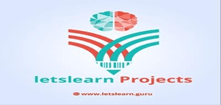 |
4 | Sify Technologies Limited |  |
5 | Yuvaan It Labs Private Limited, Nellorr | 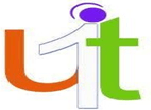 |
6 | Expert Private Limited, Chennai | |
7 | SV Technologies, Nellore | 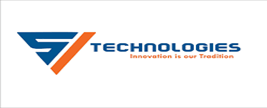 |
8 | Nelcast Ltd., Gudur |  |
9 | Aspiring Minds | |
10 | Research Education Solutions |  |
11 | TRIAD | 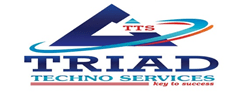 |
12 | EdGate Technologies | 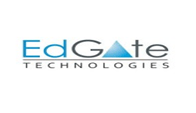 |
13 | ALX SOLUTIONS INDIA PVT LTD |  |
News Letter
S.NO | Name Of the Event | View |
1 | Halfyearly News Letter-AY-2022-23-issue-2 | |
2 | Halfyearly News Letter-AY-2022-23-issue-1 | Click Here |
3 | Halfyearly News Letter-AY-2021-22-issue-2 | Click Here |
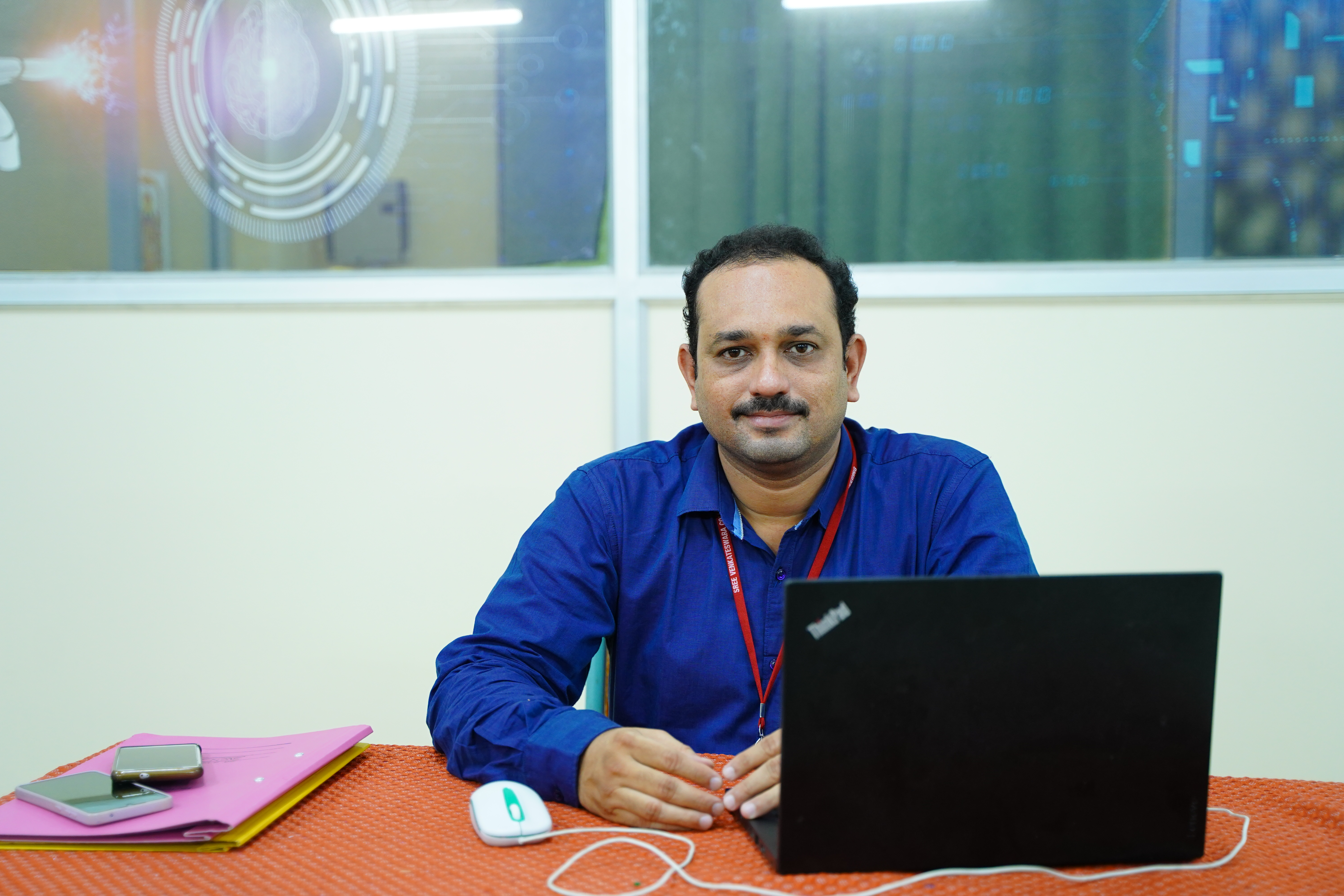
Professor & HOD Department of CSE
drkvnagendra@svcn.ac.in
7032651099


